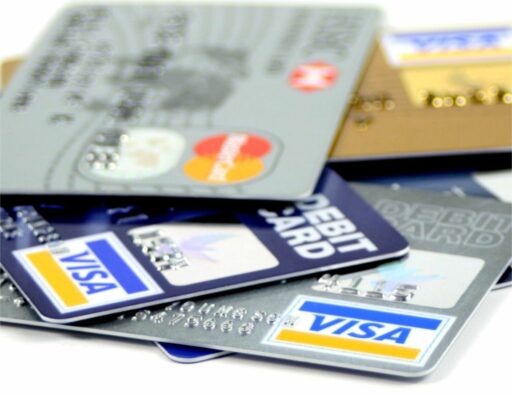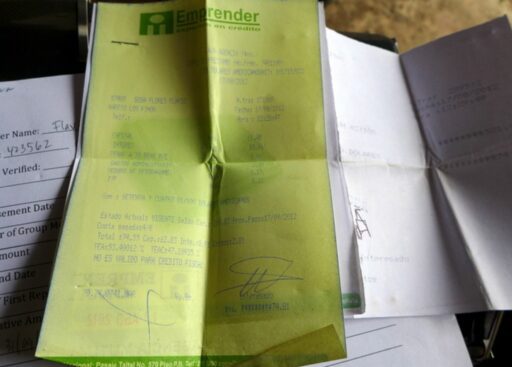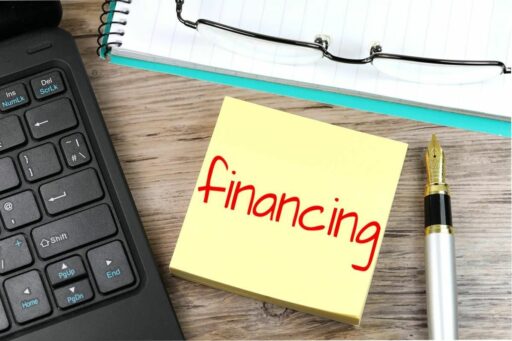As warmer weather beckons, the hunt for the perfect lawn mower can be daunting, especially with a less-than-perfect credit score. Yet, the right knowledge can empower you to navigate lawn mower financing, select a mower that suits your budget, and even improve your credit for future investments. This article unpacks the essentials of lawn mower financing for those with bad credit, offering practical tips and tricks to make an informed purchase without compromising on quality or financial health.
Key Takeaways
- Understanding different financing options and the impact of bad credit on securing a loan is crucial for a well-informed purchase decision.
- Selecting a lawn mower within your budget doesn’t mean sacrificing quality; there are great value options that provide premium performance.
- Improving your credit score is a strategic move that can benefit future purchases, with specific actions like credit report reviews and small consumer loans.
- Managing lawn mower expenses goes beyond the purchase price, encompassing maintenance costs, fuel efficiency, and the potential need for insurance.
- The second-hand market offers opportunities for those with bad credit to find reliable used lawn mowers and negotiate prices effectively.
Understanding Lawn Mower Financing Options


Securing a Loan with Bad Credit
Securing financing for a lawn mower with bad credit can be challenging, but it’s not impossible. Lenders may offer different types of loans with varying interest rates and terms, so it’s crucial to shop around and compare options. A signature loan with a fixed rate is often sought after due to its stability in payments.
For those with bad credit, a share secured loan might be a viable option. This type of loan typically offers lower interest rates, as it’s secured against your savings. It’s important to understand that the APR (Annual Percentage Rate) may fluctuate with changes in the interest rate index.
Remember, the key to securing a loan with unfavorable credit is to demonstrate your ability to repay. This might involve presenting a solid repayment plan or showing proof of steady income.
Here’s a quick look at some loan types and their terms:
| Loan Type | Term | APR | Monthly Payment per $1,000 |
|---|---|---|---|
| Signature Loan Fixed Rate | 24 months | 10.99% | $46.62 |
| Signature Loan Variable Rate | 60 months | 12.21% | $22.36 |
| Share Secured Variable Rate | 60 months | 2.15% | $17.60 |
While the rates above are examples, your actual rate will depend on your creditworthiness and the specifics of the loan. It’s advisable to reach out to lenders directly to get the most accurate information for your situation.
Alternative Financing Solutions
When traditional loans are not an option, exploring alternative financing solutions can be a lifeline for purchasing a lawn mower with bad credit. One such option is a share secured loan, which allows you to borrow against your own savings, often at a lower interest rate. This can be particularly advantageous for those with limited credit history or low credit scores.
Another avenue is a credit builder loan, designed to help individuals improve their credit scores while financing their purchase. These loans typically have favorable terms, such as lower APRs, which can make them a more accessible option for those with bad credit.
It’s important to compare the terms and rates of different financing options to ensure you find the most suitable one for your financial situation.
Lastly, consider personal loans from credit unions or online lenders that specialize in bad credit financing. These institutions often provide more flexible terms and are more willing to work with individuals who have less-than-perfect credit.
The Role of Down Payments and Trade-Ins
Making a significant down payment or trading in your old equipment can be a smart move when financing a lawn mower with bad credit. A larger down payment reduces the amount you need to finance, which can lead to more favorable loan terms and lower interest rates. Similarly, trading in your current lawn mower can offset the cost of the new purchase, effectively acting as a down payment.
When considering down payments and trade-ins, it’s important to assess the value of your trade-in accurately and determine how much down payment you can afford without straining your finances.
Here’s a quick guide to help you understand the impact of down payments and trade-ins on your financing options:
- Down Payment: The more you put down, the less you have to borrow, which can improve your loan terms.
- Trade-In Value: Ensure you get a fair estimate for your old lawn mower to maximize its value towards the new purchase.
- Loan Amount: A reduced loan amount can lead to lower monthly payments and a shorter loan term.
- Interest Rates: With a lower principal, you might qualify for a lower interest rate, saving you money over time.
Selecting the Right Lawn Mower for Your Budget


Evaluating Cost vs. Quality
When considering a lawn mower purchase, the balance between cost and quality is crucial. Models that perform well in tests and are priced below the average can offer significant value. For instance, models that score 65% or higher for cordless and petrol mowers, and 60% or more for corded ones, while being at least 20% cheaper than the average, are considered great value.
It’s essential to find a lawn mower that is both affordable and effective, ensuring you don’t compromise on quality for the sake of price.
Reading customer reviews and ratings can provide insights into the real-world performance and satisfaction levels of different lawn mowers. Look for models with a high percentage of 4 and 5-star ratings, as they often indicate a good balance of cost and quality. Here’s a snapshot of customer ratings:
- 5 stars: 72%
- 4 stars: 17%
- 3 stars: 7%
- 2 stars: 2%
- 1 star: 1%
Remember, the most popular models on the showroom floor are not always the best choice. It’s worth exploring various brands and models to find the one that meets your specific needs and budget constraints.
Great Value Lawn Mower Recommendations
When it comes to lawn care on a budget, finding the right mower is crucial. Our Great Value recommendations are tailored for those who need to balance cost with performance. These models not only perform well in our tests but are also significantly more affordable than their counterparts.
For those with budget constraints, our reviews highlight models that excel in both quality and price. The Great Value lawn mowers we recommend have scored at least 65% for cordless and petrol models, and 60% for corded ones, while being at least 20% cheaper than the average price of tested mowers.
It’s important to remember that a higher price doesn’t guarantee a better mower. We’ve found excellent options under \$200 that can compete with models priced over \$1,000.
To ensure you make an informed decision, consider the following list of factors when reviewing our Great Value lawn mowers:
- Performance in various grass conditions
- Durability and build quality
- Ease of use and maintenance
- Battery life (for cordless models) or fuel efficiency (for petrol models)
By prioritizing these aspects, you can secure a lawn mower that not only fits your budget but also meets your lawn care needs effectively.
Features That Matter: Balancing Price and Performance
When selecting a lawn mower, balancing the cost with the desired features is crucial. The right features can significantly enhance the mowing experience without breaking the bank. For instance, a self-propelled mower might be pricier, but it can save you effort and time, especially on larger lawns.
It’s important to consider not just the initial purchase price but also the long-term value. Features that improve durability and reduce maintenance costs can lead to savings over time.
Here’s a quick guide to assess which features are worth investing in:
- Adjustable cutting heights: Essential for different grass types and seasons.
- Mulching capability: Returns nutrients to your lawn, reducing fertilizer costs.
- Battery life (for electric models): Longer battery life means less frequent charging and can save time.
- Ease of use: Features like ergonomic handles and easy-to-access controls can make mowing less of a chore.
Remember, a higher price tag doesn’t always equate to better quality. As noted in the snippet from Popular Mechanics, "Of course, you pay for mower size, power and features. The more of those you want, the more expensive the mower." However, some models that are labeled as ‘Great Value‘ perform well in tests while being significantly more affordable. It’s worth exploring these options, especially if you’re working with a tight budget.
Improving Your Credit Score for Future Purchases


Understanding Your Credit Report
A credit report is a detailed breakdown of an individual’s credit history, prepared by a credit bureau. Understanding your credit report is crucial as it influences your ability to secure loans, including financing for a lawn mower, and affects terms like interest rates and repayment periods.
Your credit report includes various sections such as personal information, credit accounts, credit inquiries, and public records. It’s important to review each section carefully to ensure accuracy. Discrepancies can negatively impact your credit score, which is a numerical representation of your creditworthiness. A common question is how a credit score around 640 affects loan approvals and terms.
Here’s a simplified breakdown of a typical credit report:
- Personal Information: Your name, address, Social Security number, and employment information.
- Credit Accounts: Details of current and past accounts including type, date opened, credit limit, account balance, and payment history.
- Credit Inquiries: Records of when a lender has requested your credit report, typically after you apply for credit.
- Public Records: Legal matters that may affect creditworthiness, like bankruptcies, foreclosures, or tax liens.
Regularly monitoring your credit report allows you to spot errors and unrecognized activity that could indicate identity theft. It’s also the first step in improving your credit score for future purchases.
Strategies for Credit Repair
Repairing your credit score is a critical step towards better financial health and more favorable loan terms in the future. Developing a plan to pay down existing debt is often the cornerstone of credit repair strategies. This can include prioritizing debts with the highest interest rates or smallest balances, depending on your situation.
- Review your credit report for errors and dispute any inaccuracies.
- Pay all bills on time to establish a history of timely payments.
- Reduce your credit utilization ratio by paying down credit card balances.
- Avoid opening new credit accounts too frequently, as this can lower your average account age.
Consistency is key when it comes to credit repair. Small, regular actions can lead to significant improvements over time.
It’s also beneficial to explore credit-building products, such as secured credit cards or small installment loans, which can demonstrate your ability to manage and repay debt responsibly. Remember, repairing credit is a marathon, not a sprint, and patience is essential.
Building Credit with Small Consumer Loans
Taking out small consumer loans can be a strategic move to build your credit score. By borrowing modest amounts and ensuring timely repayment, you demonstrate financial responsibility to credit bureaus. This can gradually improve your credit standing, making it easier to secure financing for larger purchases, like a lawn mower, in the future.
Here are some tips to build credit fast:
- Correct credit report errors
- Pay bills on time
- Maintain low credit card balances
- Become an authorized user on another’s account
- Use a secured credit card
Remember, the benefits of a high credit score extend beyond just securing loans; they can lead to lower interest rates and better terms on future credit lines.
When considering a Credit Builder Loan, it’s important to understand the terms and rates. For example, a loan with a 36-month term at 2.15% APR could result in a monthly payment of approximately $28.71 per $1,000 borrowed. Always review the loan agreement carefully to ensure the rate is manageable and the loan supports your credit-building goals.
Tips for Managing Lawn Mower Expenses


Maintenance Costs to Consider
When planning for a lawn mower purchase, it’s crucial to factor in the ongoing maintenance costs that will accrue over time. These costs can vary widely depending on the type of mower you choose and how well you keep up with regular maintenance. For instance, petrol mowers require not only fuel but also oil, and they may be more cumbersome to maneuver due to their weight.
Regular tune-ups are essential to keep your lawn mower running efficiently. According to Angi’s 2024 data, the cost for a lawn mower tuneup ranges from $10 to $250, with an average cost of around $130. This can be a significant expense, especially if you’re unable to perform the maintenance yourself.
Handling of lawn clippings is another aspect that shouldn’t be overlooked. The method you choose can affect both the health of your lawn and the amount of effort you’ll need to invest in upkeep. Here are some considerations:
- The need for petrol and oil adds to maintenance and storage requirements.
- Heavier mowers are more tiring to maneuver and noisier.
- High emissions may be a concern for those who are environmentally conscious.
Fuel Efficiency and Operational Savings
When selecting a lawn mower, fuel efficiency should be a top consideration, especially for those looking to manage expenses effectively. A more fuel-efficient model can lead to significant savings over time, reducing the overall cost of ownership. Operational savings are also crucial; features like self-propulsion and easy-start buttons can minimize effort and time spent on lawn maintenance.
Operational savings are not just about fuel efficiency; they also encompass the ease of use and time-saving features that enhance the mowing experience.
Here are some factors to consider for operational savings:
- Self-propelled models save energy and are ideal for large or uneven lawns.
- Easy-start buttons on petrol-powered mowers offer convenience and reduce start-up time.
- Battery-powered mowers eliminate fuel costs and may offer free spools for life, adding to long-term savings.
Remember, investing in a mower with these features may have a higher upfront cost but can lead to lower expenses in the long run.
Lawn Mower Insurance: Is It Worth It?
When considering the purchase of a lawn mower, one might ponder the value of lawn mower insurance. This type of insurance can protect against unforeseen costs due to accidents or theft, potentially saving you money in the long run. However, the decision to invest in insurance should be weighed against the likelihood of such events and the cost of the premiums.
- Protection: Insurance can cover repairs or replacement in case of damage or theft.
- Peace of Mind: Knowing you’re covered can ease worries about potential financial loss.
- Cost-Benefit Analysis: It’s crucial to consider whether the insurance cost is justified by the benefits.
While not mandatory, lawn mower insurance can be a strategic choice for those seeking extra security for their investment. It’s advisable to compare different policies and consider factors such as coverage limits and deductibles.
Ultimately, the choice to purchase insurance will depend on individual circumstances, including the value of the lawn mower and personal risk tolerance. For those with high-end models or living in areas prone to theft, insurance might be a prudent option. On the other hand, for more affordable models, the cost of insurance could outweigh the benefits.
Navigating the Second-Hand Market


Where to Find Reliable Used Lawn Mowers
Finding a reliable used lawn mower can be a daunting task, especially when you’re trying to navigate the market with bad credit. However, there are several avenues you can explore to find a machine that won’t let you down. Local classifieds and online marketplaces are often filled with options. Websites like Craigslist, eBay, and Facebook Marketplace are good starting points, where you can filter searches by location and price to find the best deals near you.
Specialized equipment sites such as Machinery Pete offer a vast selection of used lawn mowers, with detailed listings to help you make an informed decision. For instance, a recent listing titled ‘Used Lawn Mowers for Sale – 11656 Listings – Machinery Pete’ suggests a plethora of options to choose from. Remember to always check the seller’s history and reviews to gauge reliability.
When considering a second-hand lawn mower, it’s crucial to inspect the equipment thoroughly. Look for signs of wear and tear, check the maintenance history, and test the mower if possible. This due diligence can save you from future expenses and ensure you get a lawn mower that’s worth your investment.
Lastly, don’t overlook local dealers and repair shops. They often have trade-in models that have been serviced and are ready for a new home. These establishments can also provide valuable advice and may even offer warranties on pre-owned equipment.
Assessing the Condition of Pre-Owned Equipment
When considering a second-hand lawn mower, it’s crucial to assess its condition thoroughly. A well-maintained mower can be a cost-effective alternative to a new one, especially if you’re working with bad credit. Start by examining the mower’s exterior for any signs of damage or excessive wear. Check the engine for leaks, the blades for sharpness, and the wheels for stability.
Remember, a mower that has been serviced regularly is more likely to be reliable. Ask for service records and inspect them for consistency and frequency of maintenance.
Here’s a checklist to guide you through the evaluation process:
- Confirm the age of the lawn mower.
- Inspect the body for rust or damage.
- Check the oil level and quality.
- Test the engine’s start-up and listen for unusual noises.
- Evaluate the condition of the belts and cables.
- Ensure all safety features are intact and functional.
By taking the time to go through these steps, you can make an informed decision and potentially negotiate a better price, even with bad credit.
Negotiating Prices with Bad Credit
Negotiating the price of a used lawn mower when you have bad credit can be challenging, but it’s not impossible. Understanding the market and your financing options is crucial. Before entering negotiations, research the average prices and consider the financing terms available to you. Here’s a quick reference for used auto loan rates, which can be somewhat analogous to used lawn mower financing:
| Term (Months) | APR* | Payment Example per $10,000 |
|---|---|---|
| 24 | 8.99% | $456.92 |
| 36 | 8.99% | $318.03 |
| 60 | 8.99% | $207.60 |
| 84 | 8.99% | $160.90 |
*Rates are for illustrative purposes and are subject to change based on creditworthiness.
When negotiating, be upfront about your credit situation and ask for a fair price that reflects the lawn mower’s condition and market value. Remember, sellers are often willing to consider lower offers rather than lose a potential sale.
Be prepared to walk away if the terms are not in your favor. This strengthens your bargaining position and sometimes prompts the seller to offer better terms.
Lastly, ensure that any agreement you reach is clearly documented and that all terms, including the interest rate and payment schedule, are fully understood by both parties.
Conclusion
Navigating lawn mower financing with bad credit can be a challenging journey, but with the right approach and knowledge, it’s possible to find a solution that fits your budget and lawn care needs. Remember that a higher price tag doesn’t always equate to better quality, and there are great value options available that won’t break the bank. Pay attention to features that will make mowing more pleasant, such as self-propulsion and easy-start buttons, and consider how the mower handles clippings to maintain a healthy lawn. With technological advancements improving lawn mowers each year, investing in a new model can be a worthwhile decision. Whether you opt for a petrol, electric, or manual mower, ensure it aligns with your environmental considerations and maintenance preferences. By keeping these tips and tricks in mind, you’ll be better equipped to make an informed decision and enjoy a greener, more beautiful lawn.
Frequently Asked Questions
Can I finance a lawn mower with bad credit?
Yes, you can finance a lawn mower with bad credit. While your options may be more limited, there are lenders who specialize in loans for those with less-than-perfect credit. You may also consider alternative financing solutions such as layaway plans, leasing, or rent-to-own programs.
What should I consider when selecting a lawn mower within my budget?
When selecting a lawn mower within your budget, consider the balance between cost and quality. Look for great value recommendations that offer reliable performance without breaking the bank. Pay attention to features that matter to you, such as self-propulsion, easy-start buttons, and adjustable handlebars, to ensure a pleasant mowing experience.
How can I improve my credit score to finance future purchases?
To improve your credit score, start by understanding your credit report and identifying any errors. Develop a strategy for credit repair, which may include paying bills on time, reducing debt, and possibly using small consumer loans to build a positive credit history. Consistent, responsible financial behavior over time can help increase your credit score.
What are some maintenance costs I should consider for a lawn mower?
Consider the costs of regular maintenance such as oil changes, blade sharpening, and replacing air filters. Also, factor in the expenses for fuel or electricity, and potential repairs. Investing in a mower with a washout port can make cleaning easier and prolong the life of the mower.
Is lawn mower insurance worth the investment?
Lawn mower insurance may be worth considering if you have invested in a high-end model or if you use your mower for commercial purposes. It can provide coverage for theft, damage, and even some maintenance issues. Evaluate the cost of the insurance against the potential risks to decide if it’s right for you.
How do I navigate the second-hand market for lawn mowers with bad credit?
When navigating the second-hand market with bad credit, look for reliable sources such as certified pre-owned programs from manufacturers or reputable dealers. Assess the condition of the equipment thoroughly and be prepared to negotiate. Some sellers may be willing to offer payment plans or accept trade-ins, which can make the purchase more affordable.





